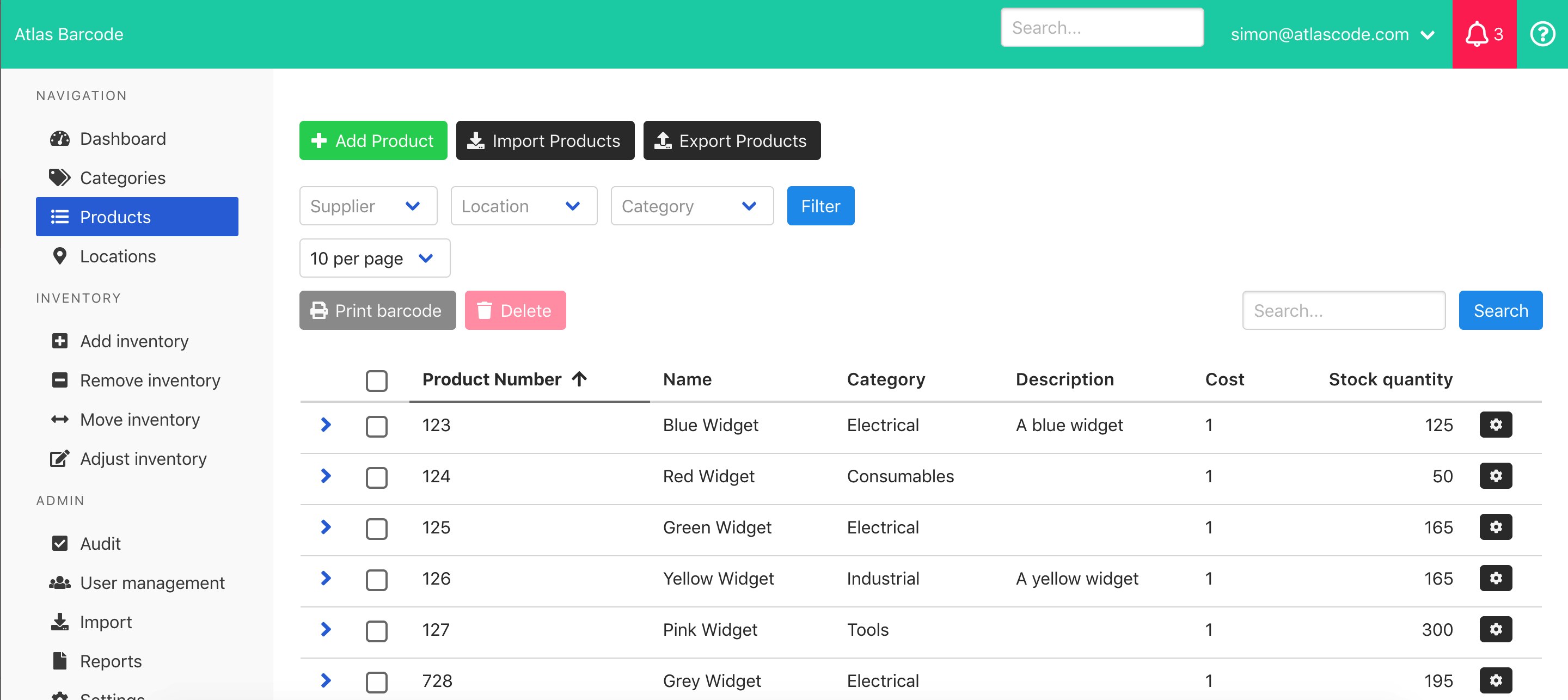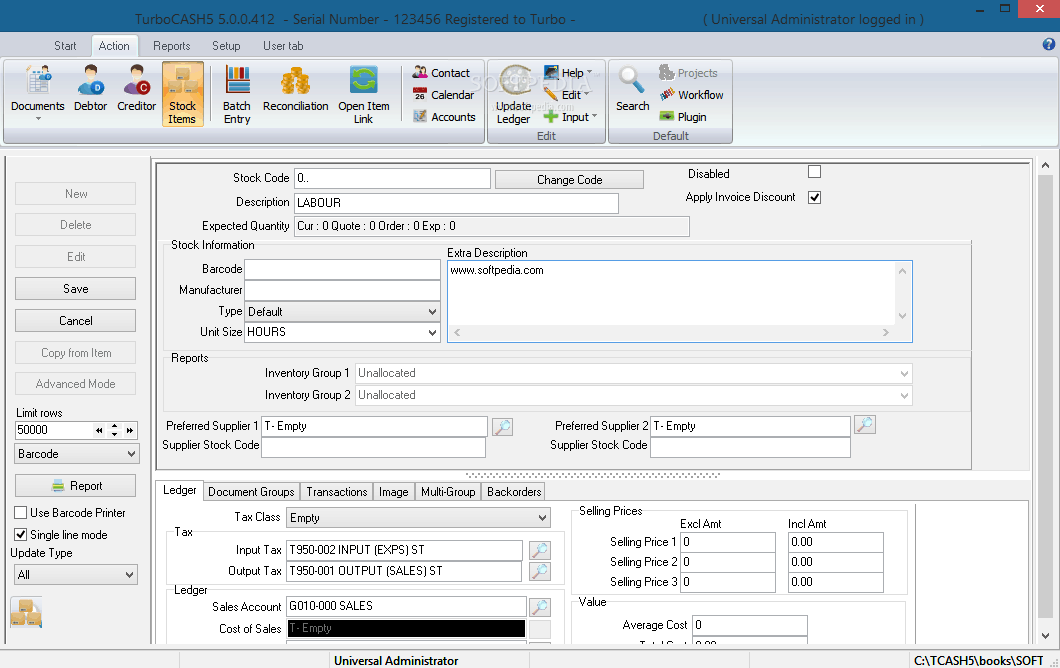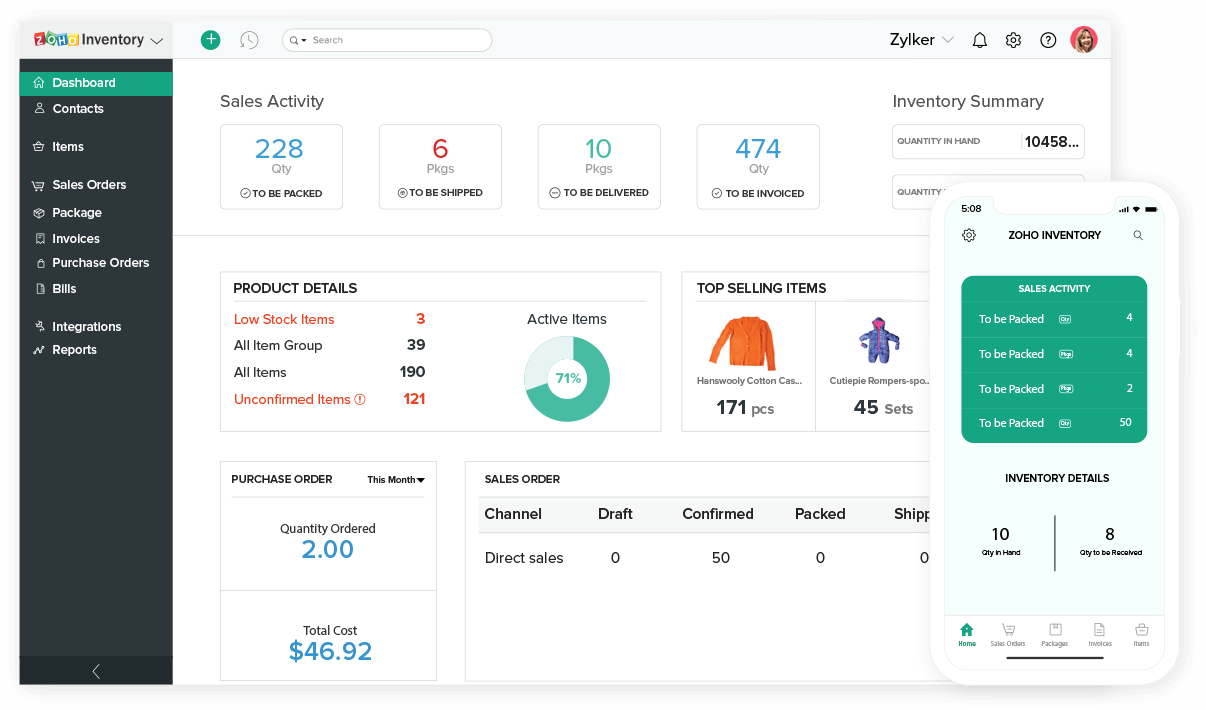Step into the realm of business accounting and inventory management software, where efficiency and organization converge. This transformative technology empowers businesses to streamline their operations, optimize inventory, and gain valuable insights for informed decision-making.
From tracking financial transactions to managing stock levels, this software suite revolutionizes the way businesses operate. Dive into the intricacies of accounting software, explore the capabilities of inventory management systems, and discover the benefits of integrating these essential tools.
Definition of Business Accounting and Inventory Management Software
Business accounting and inventory management software are essential tools for businesses of all sizes. These software solutions can help businesses track their financial transactions, manage their inventory, and generate reports that can help them make informed decisions.
Business accounting software is designed to help businesses track their income and expenses, as well as their assets and liabilities. This information can be used to create financial statements, such as balance sheets and income statements, which can be used to assess the financial health of a business.
Inventory management software is designed to help businesses track their inventory levels, as well as the cost of goods sold. This information can be used to ensure that businesses have the right amount of inventory on hand to meet customer demand, while also minimizing the cost of holding inventory.
Benefits of Business Accounting Software
- Improved accuracy and efficiency: Business accounting software can help businesses improve the accuracy and efficiency of their financial reporting. This can lead to better decision-making and improved financial performance.
- Reduced costs: Business accounting software can help businesses reduce their costs by automating many of the tasks that are required to manage their finances. This can free up employees to focus on other tasks that can help the business grow.
- Improved compliance: Business accounting software can help businesses comply with financial reporting regulations. This can reduce the risk of penalties and fines.
- Enhanced decision-making: Business accounting software can provide businesses with the information they need to make informed decisions about their finances. This can lead to better financial performance and increased profitability.
Key Features of Inventory Management Software
- Inventory tracking: Inventory management software can help businesses track their inventory levels in real time. This information can be used to ensure that businesses have the right amount of inventory on hand to meet customer demand, while also minimizing the cost of holding inventory.
- Cost of goods sold tracking: Inventory management software can help businesses track the cost of goods sold. This information can be used to calculate the profitability of different products and services, and to make informed decisions about pricing and inventory levels.
- Reorder point management: Inventory management software can help businesses set reorder points for their inventory items. This ensures that businesses have enough inventory on hand to meet customer demand, while also minimizing the risk of overstocking.
- Reporting: Inventory management software can generate a variety of reports that can help businesses track their inventory performance. These reports can be used to identify trends, improve inventory management practices, and make informed decisions about inventory levels.
Integration of Business Accounting and Inventory Management
Integrating business accounting and inventory management software can streamline operations, improve efficiency, and enhance decision-making. This integration enables real-time data sharing between the two systems, eliminating the need for manual data entry and reducing errors.
Examples of Integration
* Automatic updates of inventory levels in the accounting system based on sales transactions
* Real-time tracking of inventory costs and valuation
* Integration of inventory data into financial reports for accurate financial analysis
Advantages of Integration
* Improved accuracy: Eliminates manual data entry errors and ensures data consistency
* Increased efficiency: Automates tasks and streamlines processes, saving time and resources
* Enhanced decision-making: Provides real-time data on inventory levels and costs, enabling informed decision-making
* Reduced costs: Eliminates the need for additional software and reduces labor costs
Challenges of Integration
* Data compatibility: Ensuring that data formats and structures are compatible between the two systems
* System complexity: Integrating different software systems can introduce complexity and potential compatibility issues
* Data security: Implementing proper security measures to protect sensitive financial and inventory data
Benefits of Using Business Accounting and Inventory Management Software

Utilizing business accounting and inventory management software offers numerous advantages for businesses. These software systems can streamline financial processes, enhance inventory management, and contribute to significant time and cost savings.
Benefits of Accounting Software for Businesses
- Accurate and Timely Financial Reporting: Accounting software automates data entry and calculations, ensuring accuracy and eliminating errors in financial statements.
- Improved Cash Flow Management: Real-time visibility into cash flow enables businesses to make informed decisions and optimize their financial performance.
- Compliance with Regulations: Software assists in maintaining compliance with accounting standards and tax regulations, reducing the risk of penalties.
Benefits of Inventory Management Software for Efficiency
- Optimized Inventory Levels: Inventory management software helps businesses maintain optimal inventory levels, minimizing overstocking and stockouts.
- Enhanced Warehouse Management: Software provides real-time visibility into inventory location and movement, streamlining warehouse operations.
- Improved Order Fulfillment: Automated order processing and inventory tracking reduce errors and expedite order fulfillment.
Examples of Time and Cost Savings
- Reduced Manual Labor: Software automates tasks, eliminating the need for manual data entry and reconciliation, saving time and reducing labor costs.
- Increased Efficiency: Streamlined processes and real-time data access improve efficiency, allowing businesses to focus on core operations.
- Error Reduction: Automated calculations and data validation minimize errors, reducing the need for rework and saving time.
Features to Consider When Choosing Business Accounting and Inventory Management Software

When selecting business accounting and inventory management software, consider these essential features to ensure it aligns with your business needs and streamlines operations effectively:
Accounting Software Comparison Table
| Feature | Software A | Software B | Software C |
|—|—|—|—|
| General Ledger | Yes | Yes | No |
| Accounts Receivable | Yes | No | Yes |
| Accounts Payable | Yes | Yes | Yes |
| Financial Reporting | Yes | Yes | No |
| Bank Reconciliation | Yes | No | Yes |
| Multi-Currency Support | Yes | No | Yes |
| Cloud-Based Access | Yes | Yes | No |
Inventory Management Software Checklist, Business accounting and inventory management software
An effective inventory management software should include the following essential features:
– Inventory Tracking: Real-time visibility into inventory levels, locations, and movements.
– Warehouse Management: Support for multiple warehouses, bin locations, and inventory transfers.
– Barcode Scanning: Integration with barcode scanners for efficient inventory tracking and data entry.
– Purchase Order Management: Streamlined purchase order creation, tracking, and approval workflows.
– Reorder Point Management: Automated notifications when inventory levels reach predefined reorder points.
– Lot and Serial Number Tracking: Ability to track inventory items by lot or serial number for quality control and traceability.
Consideration of Industry-Specific Needs
Choosing software tailored to your industry’s specific requirements is crucial. For example, a manufacturing business may require software with robust production planning and material requirements planning (MRP) capabilities, while a retail business may prioritize features such as point-of-sale (POS) integration and customer relationship management (CRM). By considering industry-specific needs, you can select software that seamlessly integrates with your existing business processes and maximizes efficiency.
Concluding Remarks

In the competitive landscape of modern business, business accounting and inventory management software stand as indispensable allies. By embracing these technologies, businesses can unlock a world of enhanced productivity, cost savings, and strategic advantage. Invest in this transformative solution today and empower your business to soar to new heights of success.
User Queries
What are the key benefits of using business accounting software?
Business accounting software streamlines financial operations, reduces errors, improves cash flow management, and provides valuable financial insights.
How does inventory management software improve efficiency?
Inventory management software automates stock tracking, optimizes ordering processes, reduces overstocking and shortages, and enhances warehouse operations.
What are the challenges of integrating business accounting and inventory management systems?
Challenges include data compatibility issues, ensuring seamless data flow, and the need for proper training and support during implementation.